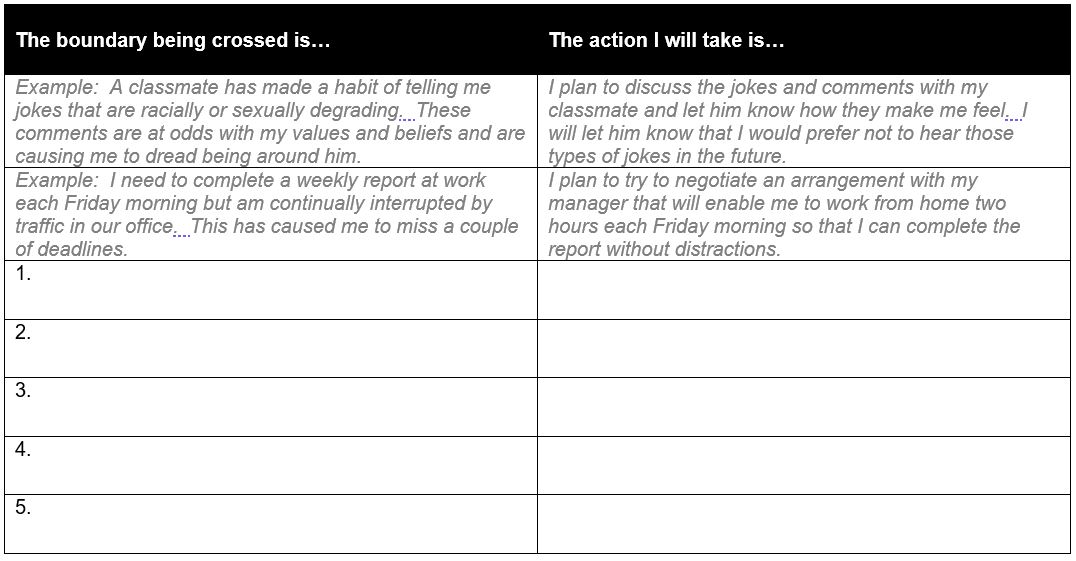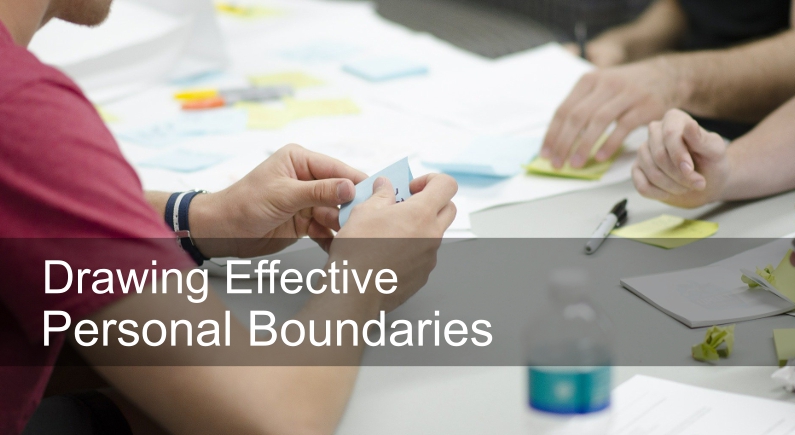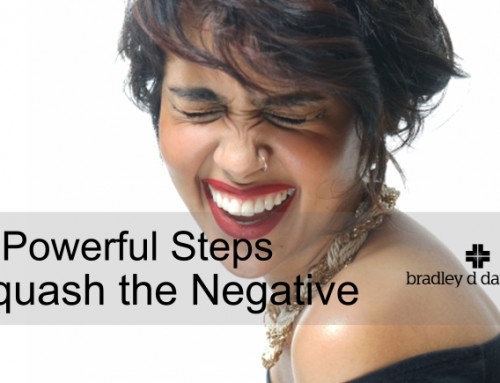Clear and healthy boundaries are critical to living your vision and creating a fulfilling life. Both in your personal and professional life, a lack of boundaries will pull you away from being your best. This quick guide will help you identify key boundaries that may need your attention and will provide some practical tools to get you started thinking about setting and maintaining the boundaries.
What are Boundaries?
Personal Boundaries are designed to protect and honor important parts of our lives. They are created to clarify what are acceptable and unacceptable behaviors from others. Just as a fence protects and preserves our real property, so should personal boundaries protect our personal selves.
Key Areas to Protect Using Boundaries
Just as we have property we preserve and protect with physical boundaries, there are several key areas of our lives that should be protected by personal boundaries:
- Your Time – In today’s world, time is an important and valuable asset. We often feel we never have enough time to focus on what’s really important in our lives yet time is often what we least protect through effective boundaries. Do you have friends who drop by unexpectedly? Do you have co-workers or employees who demand your time in unreasonable ways? Do you have tasks that could just as easily be completed by someone else? These are examples of violators of our time boundaries.
- Your Emotions – Your emotions are where your love and caring come from. This should be well-protected. Often, people in our lives may say or do hurtful things (often unintentional) that can damage our emotions and our hearts. Has someone in your life made hurtful remarks or comments? Been thoughtless? These are examples of violations of our emotional boundaries.
- Your Energy – Your energy is the well-spring from which you function. This energy can come from many sources; your “alone time”, your inner peace, activities that invigorate you, etc. When others do or say things that rob you of this energy (such as invade your privacy, create turmoil, make unreasonable demands, keep you from prayer, meditation, etc.), you are less likely to function effectively.
- Your Personal Values or Other Areas of Importance to You – Anything in your life that is important to you (such as your personal values, needs, family, etc.) can be areas that can benefit from effective boundaries. What other areas of your life need boundaries?
________________________________________________________________________________
________________________________________________________________________________
________________________________________________________________________________
Ways to Create Your Personal Boundaries
There are a number of ways to create and honor boundaries that are important to you. Here are just a few examples:
- Be clear about the boundary to both yourself and others – Make sure you have been thoughtful about the boundary issue and have defined for yourself and others what is acceptable and unacceptable.
- Once a boundary is crossed, remind the individual of your boundary and ask for his/her help in maintaining that boundary.
- If the individual continues to violate the boundary, ask firmly and politely for the behavior to stop. If the behavior continues, consider what further action is appropriate to stop the behavior. Remember that while you may be firm, you should also remain respectful of the other individual.
- Identify ways to position yourself in a time and place that minimizes the opportunity for your boundaries to be crossed.
- Thank those people around you who honor your boundaries and thank those who have honored your requests to start observing your boundaries.
- Always seek to understand and honor the boundaries of others.
Understanding and Creating Your Personal Boundaries
In the space provided, list at least 5 boundaries (either from the key areas above or other areas in your life) that need strengthening. In the space next to the boundary, identify a potential solution to that boundary issue. The solution could be anything from having a conversation with the offender to removing yourself from the situation. You may review the “Ways to Create Your Personal Boundaries” above for ideas. I’ll “prime the pump” by providing you with a couple of examples:

Creating and maintaining healthy boundaries is a great way to nourish your personal and professional effectiveness. My best wishes to you as you continue to identify strategies for living your most purposeful life!
Additional Resources
Setting Boundaries – WebMD
How is Life Tree(ting) You?: Trust, Safety, and Respect – The Importance of Boundaries – Stanford University





Leave A Comment